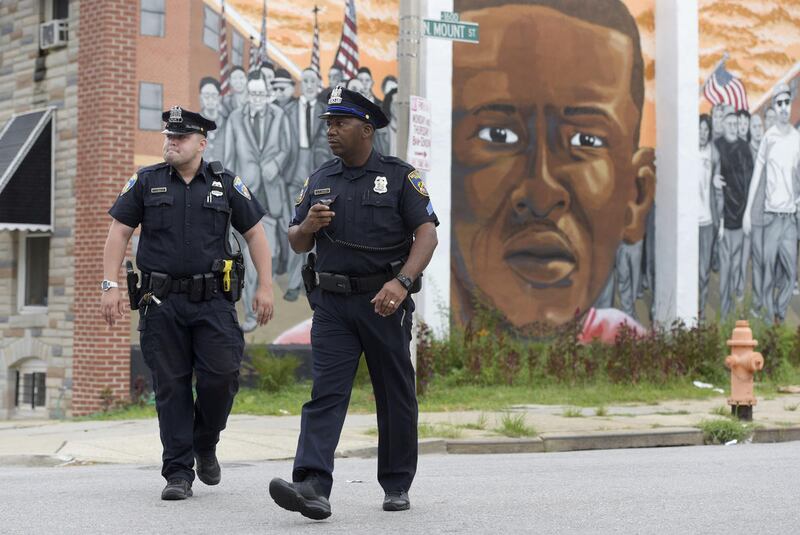Those who live in Baltimore's poorest communities had some of their biggest concerns validated when the Department of Justice released its investigation into the local police department this past week.
The investigation found that the city's police force routinely stops residents of low-income, predominately African-American communities without probable cause and ignores them in times of duress to cluster in the more affluent neighborhoods instead.
The police department's failure to implement even the "fundamental principles of community policing" is just one of many troubling findings in a scathing, 164-page report released on Aug. 10.
But the report is not the first to expose "unconstitutional" policing in poor or minority neighborhoods. Investigations prompted by the death of a person of color have popped up in cities like Cleveland, Chicago, Newark and Ferguson — all of which were conducted in the past two years.
In June 2014, the DOJ found that 75 percent of pedestrian stops by the Newark police were conducted despite having insufficient evidence to do so — and that "black individuals in Newark bear the brunt of the NPD’s pattern of unconstitutional stops and arrests."
And in Cleveland, the DOJ found that, among other things, Cleveland police were more verbally and physically abusive to African-Americans, and made it more difficult for them to file complaints about their experiences.
Michael Brown's death prompted another DOJ investigation in Ferguson, Missouri, and found that while African-Americans make up 67 percent of the city's population, they accounted for 85 percent of traffic stops, 90 percent of citations and 93 percent of arrests in 2014. It also found that the department routinely brought "certain offenses almost exclusively against African-Americans."
And after Chicago police officers shot and killed 17-year-old Laquan McDonald in late 2015, Mayor Rahm Emanuel commissioned another DOJ report that found 70 percent of African-American residents reported being stopped by Chicago police in 2015. Less than 10 percent of white residents reported being stopped that same year.
And the Baltimore investigation, prompted by the arrest and subsequent death of Freddie Gray — a 25-year-old black man who died from injuries sustained after being transported in a police vehicle with no seat belt — differed very little from the others. It found that African-Americans accounted for 95 percent of all residents stopped more than 10 times by police in five years and 82 percent of traffic stops, despite making up 63 percent of the city's total population.
As Jelani Cobb writes in a recent New Yorker article, each investigation plays into a disturbing pattern in which someone is shot by law enforcement, a city official demands a federal investigation, law enforcement denies offense, but eventually gives a "grudging acknowledgement of wrongdoing," and then concedes to a federal examination that exposes systemic racism within police departments.
Cobb writes that, in the latest example, outrage following Gray's death has less to do with the "unique horror" of racial disparities in police shootings, and more to do with the fact that a majority of Baltimore's population saw themselves in Gray, whom he refers to as "an everyman of the American city."
The Baltimore report points out that many of the department's issues stem from "systemic deficiencies," including insufficient training, lack of equipment and resources and failure to hold officers accountable for misconduct — a concept echoed in each of the aforementioned DOJ investigations.
Baltimore Mayor Stephanie Rawlings-Blake said the Baltimore Police Department is taking steps to remedy these issues, including "revamping our approach to officer accountability, including the way that the use of force by officers is reviewed and how officers are disciplined."
As for the future of Baltimore's police force, the DOJ said in a statement on Wednesday that said that it will continue its investigation.
"The results of our investigation raise serious concerns, and in the days ahead, the Department of Justice will continue working tirelessly to ensure that all Baltimoreans enjoy the safety, security and dignity they expect and deserve," said Attorney General Loretta E. Lynch.
And while all officers involved in Gray's death have either been acquitted or had all charges dropped as of July 27, Baltimore Police Commissioner Kevin Davis said after the DOJ report was released that he has fired local officers who "committed egregious violations," according to Time.
Email: sweber@deseretnews.com; Twitter: @sarapweber



